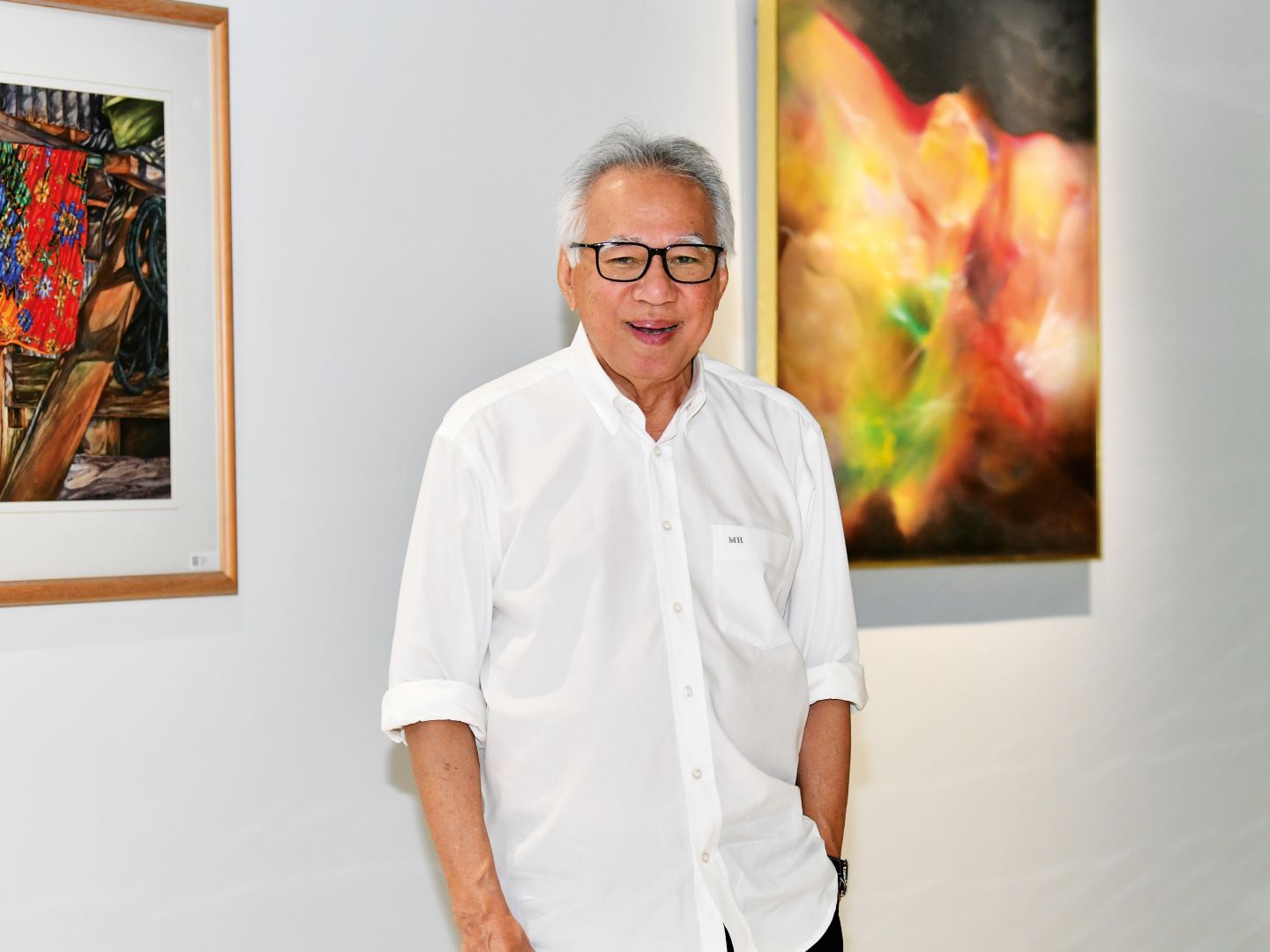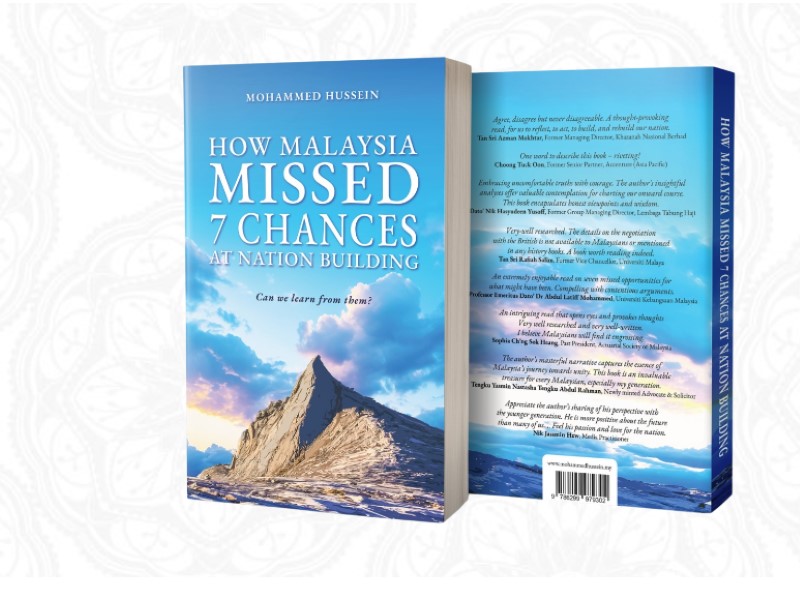
Datuk Mohammed Hussein (Photo: Shahrin Yahya/The Edge Malaysia)
Options: Congratulations on your latest book How Malaysia Missed 7 Chances at Nation Building. What inspired it?
Mohammed Hussein: It was not inspiration but rather disappointment, anger and frustration. I asked myself: Here we are just 33 years away from celebrating 100 years of independence. Have we achieved the aspirations of our founding fathers? We used to be a role model not only for neighbouring states but also the Muslim world — a vibrant yet tolerant society with a clear economic agenda. We were on the verge of greatness. Then we began to see the erosion in our values, education, governance and standards of living due to the disproportionate rising costs of basic necessities. We were well ahead of our neighbours before. Now many [of them] have caught up with us. Are we in a state of kesejahteraan? Are we even on the right track getting there?
Of the seven missed chances you discussed, which one would you highlight?
They are all sequentially related but it would be Vision 2020, with targeted implementation to address nine obstacles. And it must be applied with an overriding approach of Bersih, Cekap dan Amanah. If we had gotten that right, then we would have something to shout about when we reach 100 years as a nation.
This is in fact your second book. What inspired the first, for which you used the pen name Elm Edge?
The first book, Seeking A Life Balance, was indeed inspired. I was on a golf trip to Jakarta and while waiting to board the flight home, there was a scene on the television where this old man was asked by a much younger person, “Pak, matahari sudah terik. Kenapa kerja begitu kuat?” to which he replied, “Kerja itu ialah suatu ibadah” (work is piety). The words struck me, is this how the Indonesian government subtly instilled the spirit of self-reliance — berdikari — in its people? Is this the way they teach Islam because I had never heard such words here. So I wondered: What does Islam really teach about work ethic? That led to some reading, research and consulting scholars. I drafted some thoughts. Datuk Nik Hasyudeen took me to see the late Tan Sri Professor Mohd Kamal Hassan. Two years later the book was published.
book.jpg

Your career path is illustrious. Yet, you describe yourself as a struggling writer.
For both titles, I was writing about topics outside my career field — Islam, history, economics and politics — yet, I’m not an Islamic scholar, nor a historian. Not even an economist and, heaven forbid, certainly not a politician. Yet, my writing must have credibility. A friend of mine warned me, “MH, get your facts right or people will laugh at you”. So making sure that my books have credibility was difficult.
The other issue, specifically with the second, was I made a decision that there was no way to write about our way forward without touching on the elephants in the room. So I needed to tread carefully and gently and yet put the point across. That was difficult.
Do you have a preferred method, time and space to write?
I wake up at about 5.15 every morning — from then to 8am is the best time. Mostly in my study or at my beach house in Kelantan. Occasionally, I go solo backpacking off the beaten track.
Who are some of the writers you admire?
I’m not really an avid reader. Work is too all-consuming. Apart from the old classics during my student days — Dickens, Tolstoy and later Hemingway, John Steinbeck, Han Suyin and George Bernard Shaw — I haven’t read much since.
What are you reading right now though?
Right now, I’m just rereading my first book. It’s almost sold out and I’m thinking whether to just go for a reprint or a second edition. So I need to go through Seeking A Life Balance again. After How Malaysia Missed 7 Chances at Nation Building, I’m too exhausted to do a revision for a second edition. Not so soon anyway.
Are there books you always reread?
None in particular. Except the Quran to deepen my understanding, which I consider still shallow.
What are you listening to right now?
I never update my music. My playlist comprises mostly oldies, some classics and Latin favourites.
You touch on the future and future generations a lot in your writings. Given your vast experience, what are the three life lessons you wish to share with those just entering the working world?
Focus on developing competency and stick to your core values so that you are recognised as someone who is good at your job, responsible and trustworthy. Next, develop your leadership and communication skills, be able to work well with people and always demonstrate responsibility and integrity. Also manage your personal finances well. Get into the habit of budgeting and monitoring your expenditure. Live within your means. Borrow within your capacity. Protect your credit reputation. Don’t indulge in office politics. If you do your job well but think the organisation does not recognise or value you, move to one that does. At the same time, pursue a balanced life — you may want to read Chapter Seven of my first book.
What is your idea of a perfect weekend?
I alternate between golf on Saturday and family time on Sunday, and, in between, visiting the beach house in Kelantan.
What or where are your favourite sources of inspiration?
Inspiration can happen anytime and anywhere. But I do regularly take Grab and sometimes have stimulating conversations with the drivers on the issues they face and enjoy listening to their perspective on things.
This article first appeared on Sept 30, 2024 in The Edge Malaysia.


